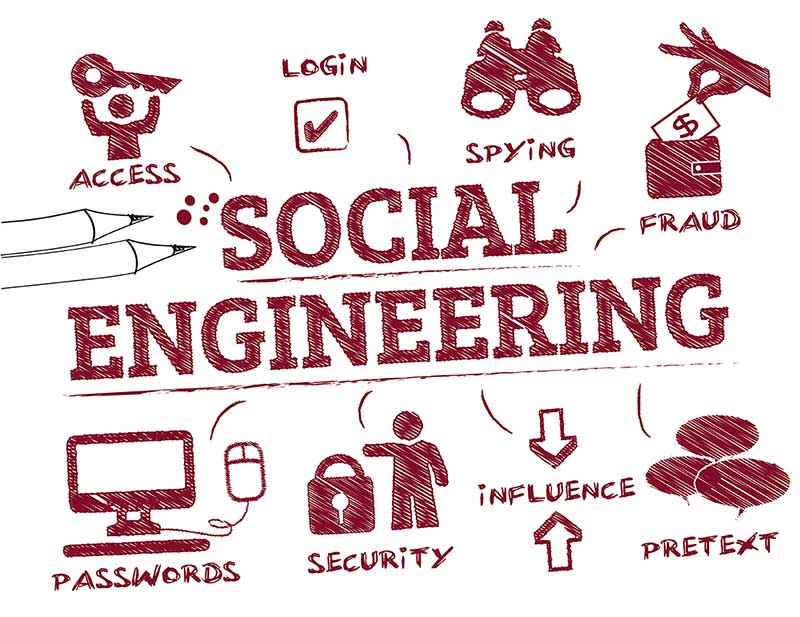Social engineering
Today, I want to talk about the fascinating topic of social engineering. It's an art that manipulates human psychology to gain unauthorized access to confidential information or systems. Social engineering attacks are becoming increasingly common and sophisticated, so it's crucial to stay informed and vigilant.
Social Engineering - Mohammad Shahrouf

In this image, we see a thought-provoking representation of the concept of social engineering. It captures the essence of how individuals can be influenced and deceived, making them unknowingly divulge sensitive information or grant unauthorized access to their systems.
Strangest Social Engineering Attacks of 2021
![]()
This image showcases the sheer audacity and boldness of social engineering attacks that occurred in 2021. Cybercriminals have become adept at exploiting human vulnerabilities, using various tactics like phishing emails, impersonation, and psychological manipulation.
Social engineering attacks can happen to anyone, regardless of their cybersecurity knowledge or background. It's important to remember that attackers prey on trust, curiosity, and urgency. They often pose as someone trustworthy or create a false sense of urgency to manipulate their victims.
To protect yourself against social engineering attacks, it's crucial to be cautious and vigilant in your online interactions. Here are some essential tips:
1. Think Before You Click
Always exercise caution when clicking on links or opening attachments, especially if they come from unknown or suspicious sources. An email or message that appears to be from your bank or a trusted organization could be a phishing attempt. Hover over links to see the actual URL before clicking on them.
2. Verify Requests for Sensitive Information
If you receive a request for sensitive information, such as your Social Security number or bank account details, be skeptical. Legitimate organizations will never ask for such information via email or unsolicited messages. Always verify the legitimacy of the request through a trusted source or by directly contacting the organization.
3. Keep Your Systems and Software Updated
Regularly update your operating system, antivirus software, and applications to protect against known vulnerabilities. Cybercriminals often exploit outdated and insecure systems to launch social engineering attacks.
4. Educate Yourself and Your Team
Stay informed about the latest social engineering techniques and share this knowledge with your friends, family, and colleagues. Regularly train and educate yourself on cybersecurity best practices to recognize and avoid falling victim to social engineering attacks.
Remember, when it comes to social engineering attacks, the best defense is knowledge and awareness. By staying informed and vigilant, you can protect yourself and your sensitive information from falling into the wrong hands.